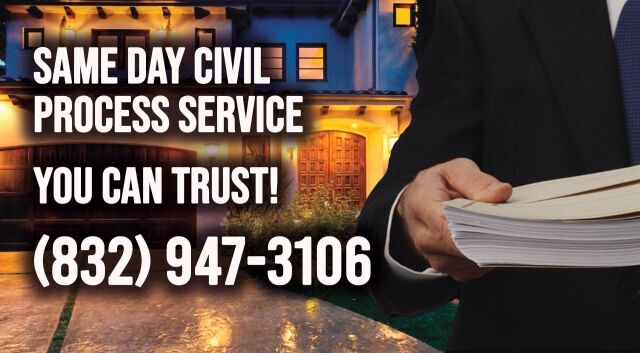Is It Legal to Lie to a Process Server? What You Need to Know
If someone shows up at your door asking for your name and holding a suspicious envelope, your first instinct might be to deny who you are. But before you do, ask yourself: Can you legally lie to a process server?
In this article, we’ll break down exactly what happens if you lie to a process server, whether it’s against the law, and how the courts handle people who attempt to avoid legal service through deception.
Can You Lie to a Process Server?
Technically, yes—you can lie to a process server. A process server is not law enforcement, and you’re not under oath when interacting with one. This means there’s no immediate criminal penalty for saying, “That’s not me,” or pretending not to be home.
But don’t assume that makes it a smart move.
Here’s why lying to a process server often backfires:
-
It doesn’t stop the lawsuit.
-
The process server may come back better prepared.
-
The court can allow alternate service methods.
-
Your credibility in court could be damaged.
-
You may face contempt charges or court sanctions.
So while you might think you’re avoiding trouble, you’re actually increasing your legal risk.
What Happens If You Lie to a Process Server?
Lying may delay personal service, but it won’t stop the legal process. Here’s what can happen if you try to avoid or deceive a process server:
| Action | Process Server Response | Legal Consequence |
|---|---|---|
| Deny your identity | May use surveillance, take photos, verify neighbors | Still counted as valid service if identity is confirmed |
| Refuse to open the door | Multiple attempts, stakeouts, or substitute service | May result in court-approved alternate service |
| Move or change address | Server may use skip tracing or database searches | Case moves forward without your input |
| Give false information | Documented in an affidavit, used as evidence in court | Possible contempt of court or sanctions |

Is Lying to a Process Server Illegal?
Lying itself is not automatically illegal unless it leads to:
-
Obstruction of justice
-
Filing false information with the court
-
Interference with an official court order
In some states, repeated efforts to interfere with legal service can result in civil or criminal penalties, especially if you lie to law enforcement during the process or forge documents.
Important: Courts generally frown upon dishonest behavior. Judges can consider your avoidance as bad faith, especially if a default judgment is later challenged.
FAQ: What People Also Ask About Process Servers
Can I pretend not to be home to avoid a process server?
Yes, you can pretend—but process servers are trained to return at different times, question neighbors, and use visual confirmation. Eventually, they’ll complete service through alternate methods.
Can a process server leave papers with someone else?
Yes, under substitute service, they can leave documents with a suitable adult at your residence, or post them on your door with court approval.
Can you go to jail for lying to a process server?
Not for the lie itself, but you can be held in contempt if your actions disrupt a court order or cause legal delays.
What if I never get served because I kept avoiding it?
If a court finds that all reasonable efforts were made, it may grant service by publication or another method. The lawsuit will move forward, and you could lose by default judgment.
What Process Servers Can and Can’t Do
Let’s clarify what process servers are legally allowed to do—and what they’re not.
| Can Process Servers… | Legally Allowed? |
|---|---|
| Wear disguises to avoid suspicion | ✅ Yes |
| Lie or deceive to gain entry | ❌ No |
| Impersonate police or court officials | ❌ No |
| Serve someone at work or in a public place | ✅ Yes |
| Leave documents at your door with court approval | ✅ Yes |

What to Do If You’ve Been Served (Or Know It’s Coming)
Instead of trying to lie to a process server, protect your rights by taking smart, legal action:
-
Accept the documents calmly and without confrontation.
-
Review everything — know what you’re being sued for.
-
Consult an attorney — protect your rights from day one.
-
File your response on time with the court.
Delaying or denying service only takes away your opportunity to defend yourself.
Final Thoughts: Lying to a Process Server Isn’t a Legal Strategy—It’s a Legal Risk
While you can legally lie to a process server in the moment, it’s rarely a wise decision. Process servers are trained professionals, and the courts have methods to proceed even if you avoid or mislead them. Attempting to delay service through dishonest means often results in default judgments, the loss of rights, and damaged credibility.
If you’re dealing with someone who is trying to avoid service—or if you’re facing legal papers—Houston Process Servers can help. We serve hard-to-reach individuals across the Greater Houston area with professionalism, legal accuracy, and results that stand up in court.
Need professional process service in Houston or surrounding counties?
Contact Houston Process Servers today.

